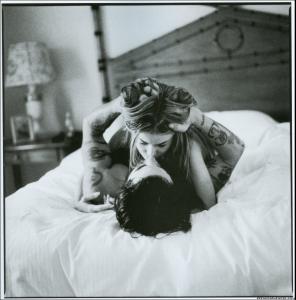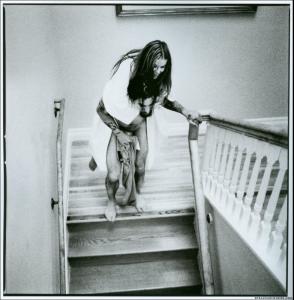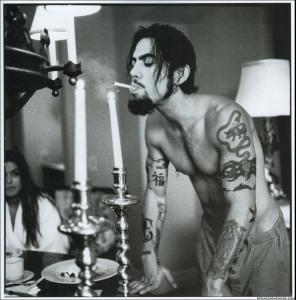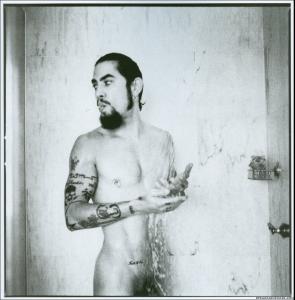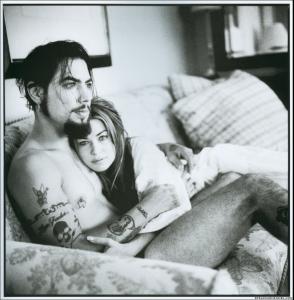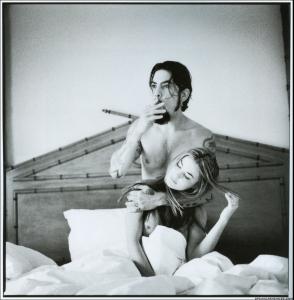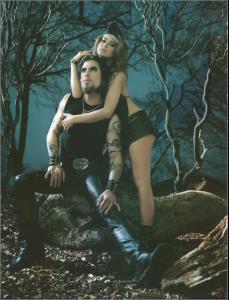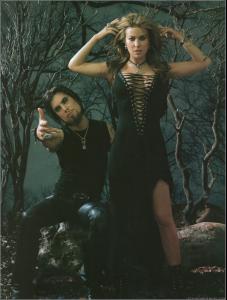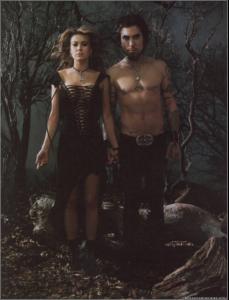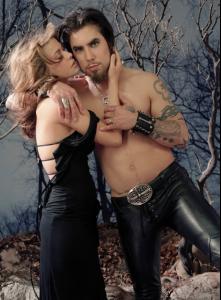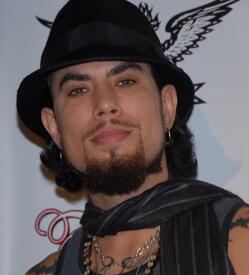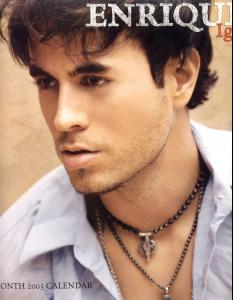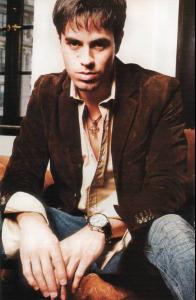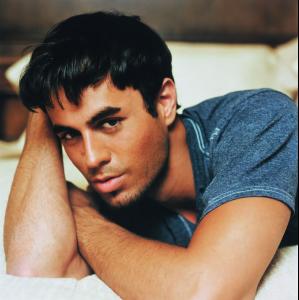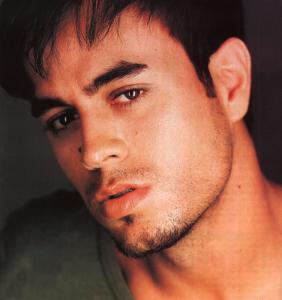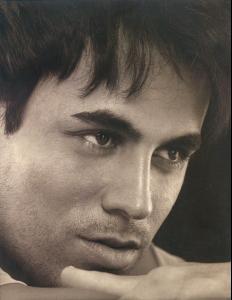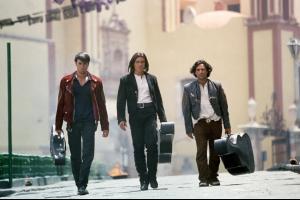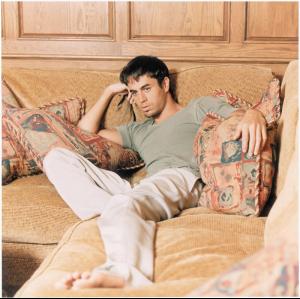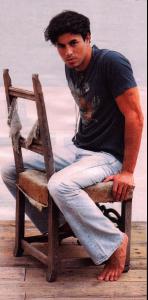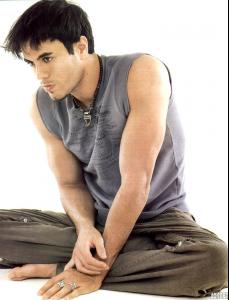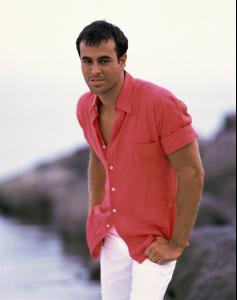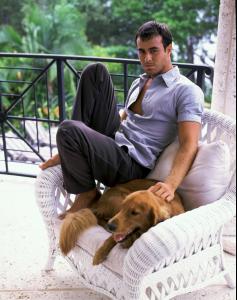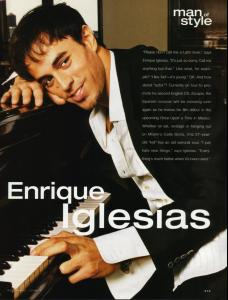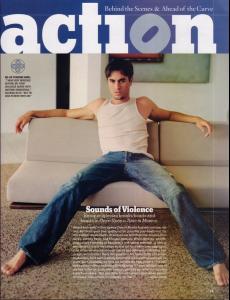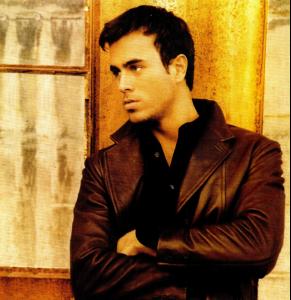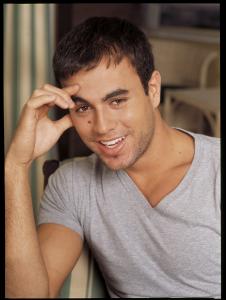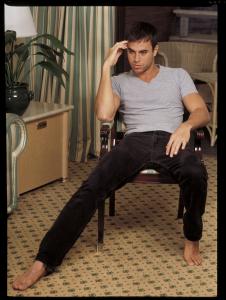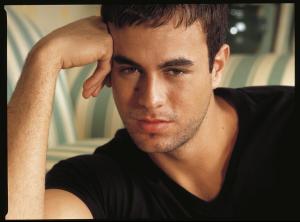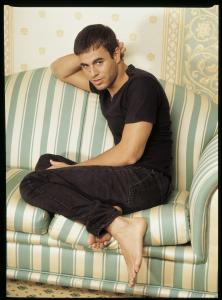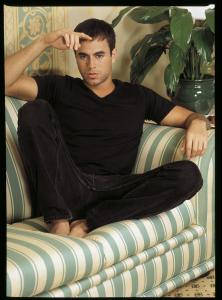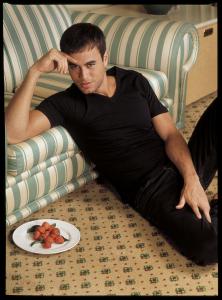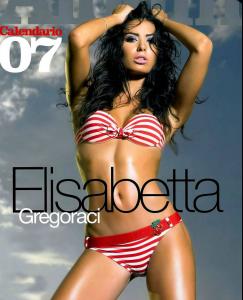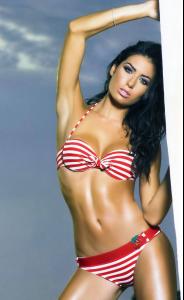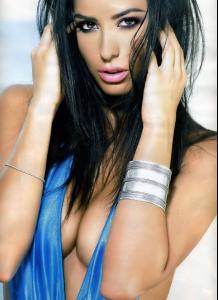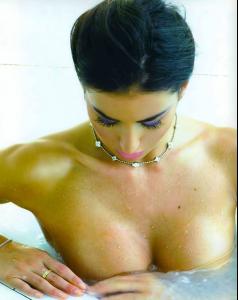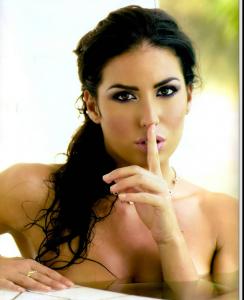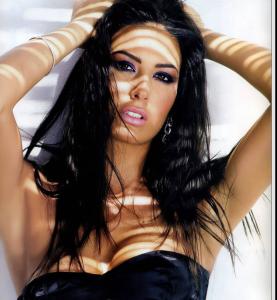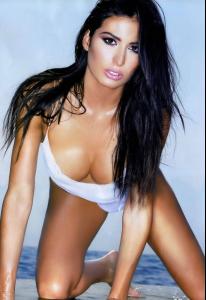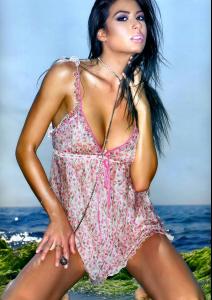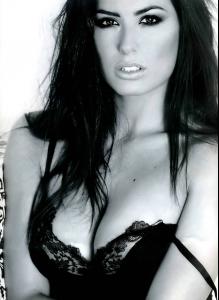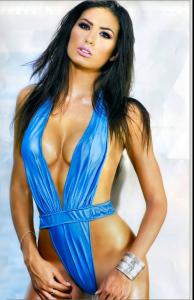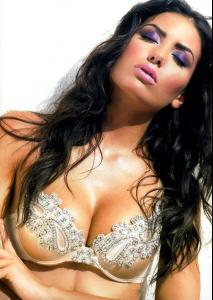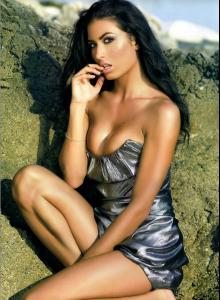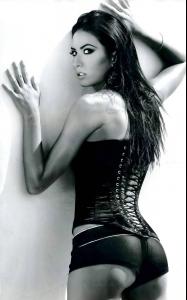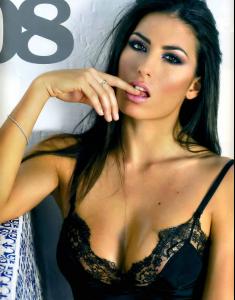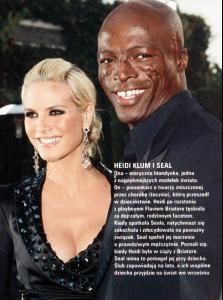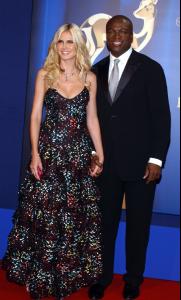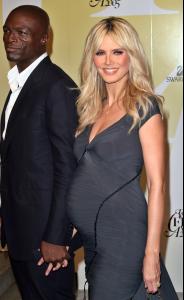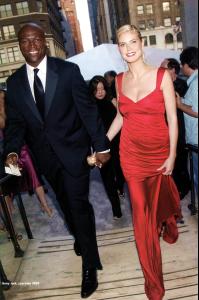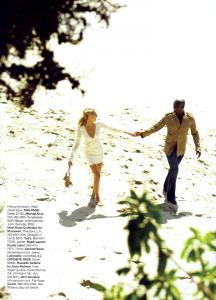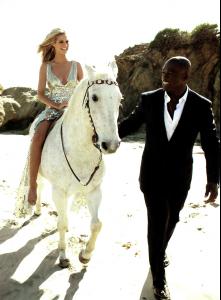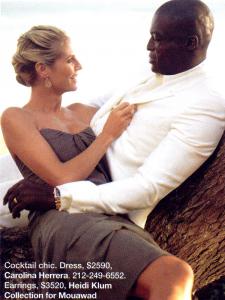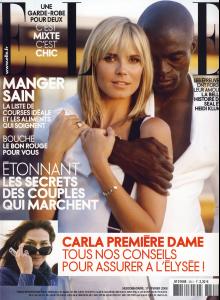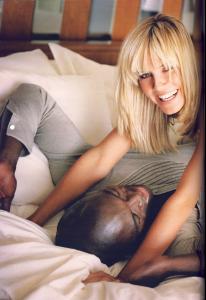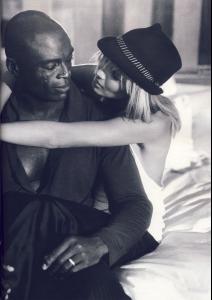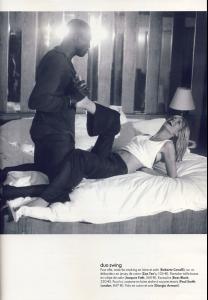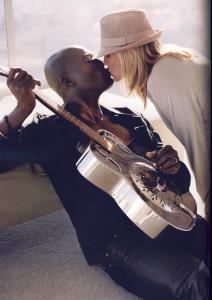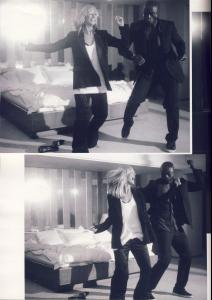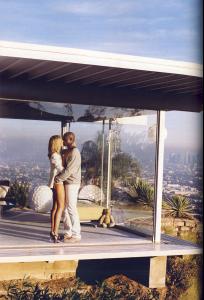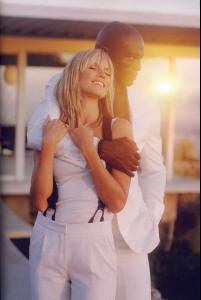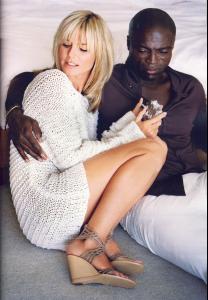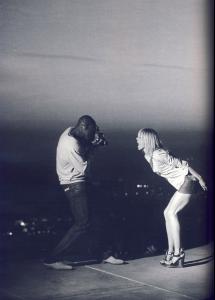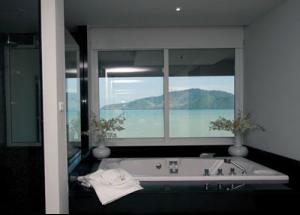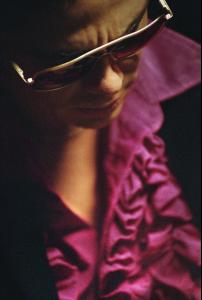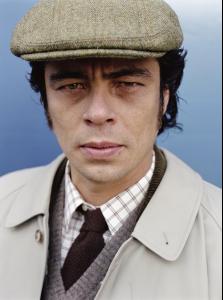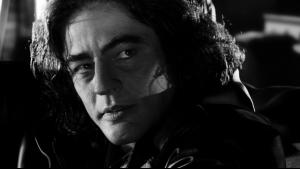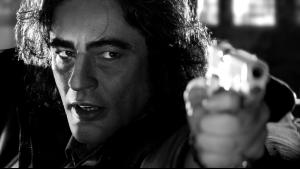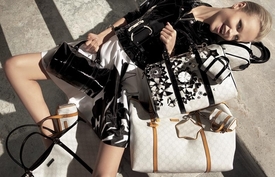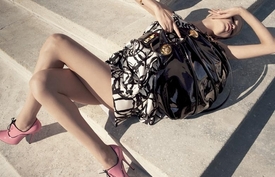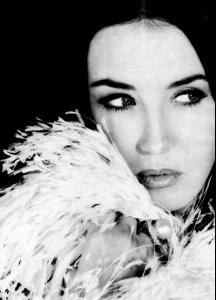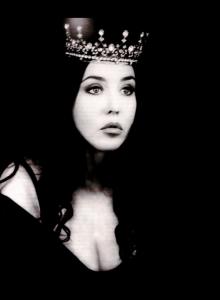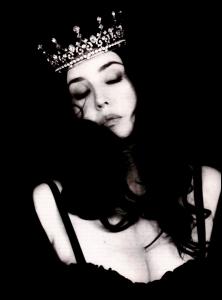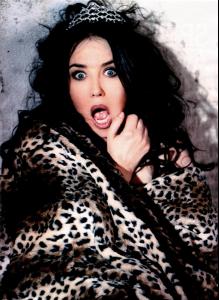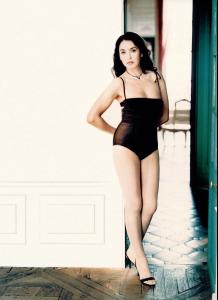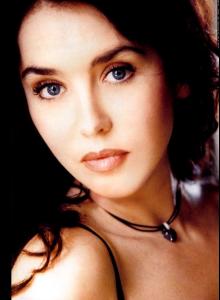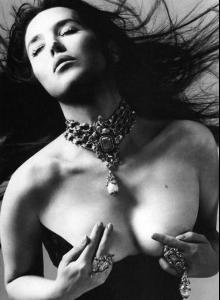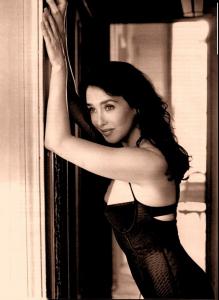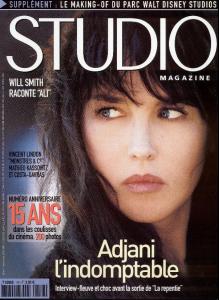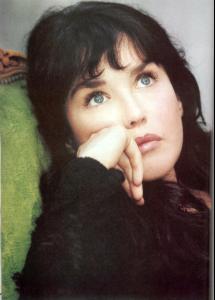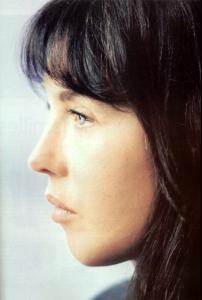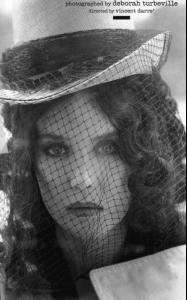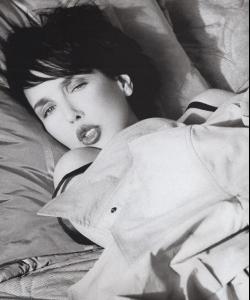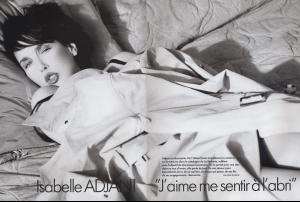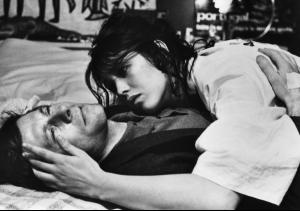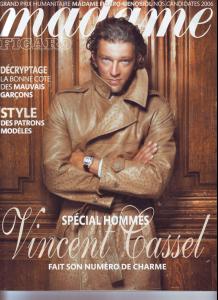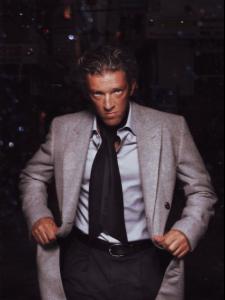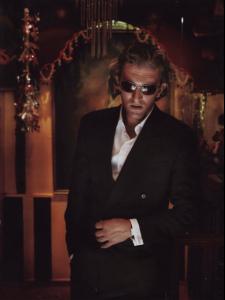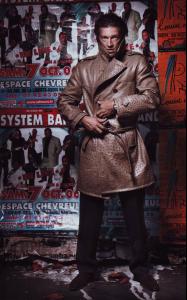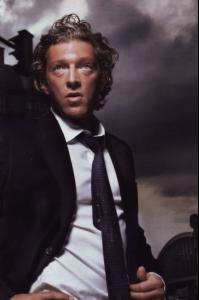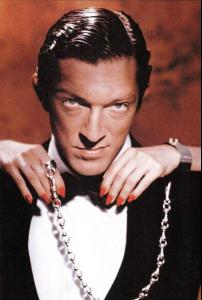Everything posted by sweetspice
- Dave Navarro
-
Dave Navarro
- Dave Navarro
David Michael Navarro (born June 7, 1967) is a guitarist who has played in the rock bands Jane's Addiction and the Red Hot Chili Peppers. Navarro is a member of The Panic Channel and the cover band Camp Freddy. Navarro was born in Santa Monica, California, to James Raul Navarro and Constance Colleen Hopkins. Navarro's paternal grandfather was from Spain. He fled persecution during the Spanish uprisings in the 1940s.[citation needed] His mother Constance worked as a model, appearing on the television show Let's Make a Deal. Navarro was the only person in his paternal family not to speak Spanish, as James and Constance divorced when he was 7 and he spent the majority of his time with his mother. Connie Navarro was murdered by her boyfriend eight years after the divorce. Her killer was arrested in 1991, thanks to a viewer tip after Navarro appeared on the television series, America's Most Wanted. After his mother's death he moved in with his father. Navarro has two half-siblings on his father's side - a brother and a sister, who are 27 and 31 years younger than him. He attended the private school Notre Dame in the San Fernando Valley, where he first met Eric Avery. He attended junior high at St. Paul the Apostle Elementary School in West Los Angeles (where Paris Hilton and Sean Astin also attended). Navarro has been married and divorced three times. He married his first wife, make-up artist Tania Goddard, in a pagan ceremony in 1990 and his second wife, Rhian Gittins, in a civil ceremony on October 15, 1994. Navarro married model and actress Carmen Electra, on November 22, 2003. On July 17, 2006, Navarro and Electra announced their split to Star Magazine. Navarro posted a message on his blog the following morning saying "I just want to say thanks for all of your love and support. I'm sure that you can understand that I wish to keep all personal matters private." Electra filed for divorce on August 8, 2006. It was rumored in August 2006 that Dave was dating porn actress Jenna Jameson, but Navarro has denied this on his blog- Enrique Iglesias
- Enrique Iglesias
- Enrique Iglesias
- Elisabetta Gregoraci
- Elisabetta Gregoraci
Before she took her first steps in show business, Elisabetta focused her efforts on education. A diploma in accounting in 1998 came first, and she followed it up with a move to Rome and a degree in modern dance. Rome and dance proved to be a winning combination for Elisabetta, since it inspired her to compete for the title of Miss Italy in 1997. She didn't win, but it gave her new ideas about working in the entertainment field and using her beauty as a way in. Elisabetta used her pageantry exposure to join the world of cinema in 1999. She made three films in a row: Il cielo in una stanza, C'era un cinese in coma and Si sente che sono calabrese. As a result of her film experiences, Elisabetta was offered a spot on the Italian TV series Euro 2000. Her success on the show made her a TV staple, and Euro was her first of nine television series. Elisabetta's most popular television endeavor, however, was as a dancer on Libero, but she also found success off-camera as a model. In 2004, she replaced Eva Herzigova as the face and body of Wonderbra, and she also took on additional modeling chores for Armani and Dolce & Gabbana. In 2006, Elisabetta was caught in a scandal involving Salvatore Sottile, a high-ranking spokesperson for Italy's foreign ministry. Allegedly, they engaged in a sexual relationship to secure her a television spot, but neither was charged with any wrongdoing. Though Elisabetta denied that anything sexual took place, she had previously stated in ample detail that there had indeed been a relationship. In any case, it did little to harm her career, and the tabloid exposure landed her a commercial gig as the face of a mobile phone company. Since the scandal in 2006, Elisabetta remained strong in her career and personal life. She found love with Flavio Briatore, the Team Principal of the Renault team on the Formula 1 circuit. The doubters balked at their 31-year age difference, but all bets were off when the couple became engaged and announced a 2008 wedding.- Elisabetta Gregoraci
Elisabetta Gregoraci (born February 8, 1980) is an Italian TV showgirl. She was born in Soverato, province of Catanzaro, Calabria, Italy. As a child, she had various career aspirations, including being a police woman and a detective. This was based on her mom's tough stance on good and evil, which rubbed off on Elisabetta and her sister. Justice and crime-fighting didn't prove to be in the cards for Elisabetta, but another one of her early wishes most certainly was. Using her mom's brush, she would speak into a "microphone," look in the mirror and imagine herself on television.- Seal
- Seal
- Seal
You have to start healing and you have to start saying to yourself, OK, I am worth it, I do deserve this." Seal's new look—a shaved head—at once represented a concession to California temperatures and a clean break from the past. He'd lived through a number of losses and near catastrophes between the two albums. "I had a really heavy duty car crash in California," he told Cooper. "I nearly flew off a canyon on to a freeway a hundred feet below at peak hour. The car was completely written off and, miraculously, I walked away virtually unscathed. Then I got double pneumonia. The doctors said it was touch and go at one stage but I came out of that unscathed too, with no scarring on my lungs or anything. Then there was a shooting right in front of me on [Hollywood's] Sunset Boulevard." Seal claimed that a London healer helped him recover from his illness and clarify his life; he appears on the cover of his second album in the nude, his newly shorn pate adding to the overall image of strength through vulnerability. "My whole approach to this record was one of openness," he told Cooper. He also emphasized in various interviews that the "idealistic" world-saving stance of his first album had neglected the necessity of healing oneself—spiritually and otherwise—before one could truly help others. Part of this healing meant putting fame in perspective, and allowing his "celebrity" self to surface when he needed to protect his private self. "The days I wanted to be noticed, wanted some feedback," he informed Smith in the Independent,"I could go out there and kind of exude and I'd get recognized," becoming "Seal, pop star, impervious to everything." Seal the second was generally greeted with critical raves. "This British neo-soul singer's gift flows from his ability to transform dance floor tracks into spine-tingling, magical experiences," enthused James Bernard of Entertainment Weekly, who gave the album an "A" grade. Reviewer Hobey Echlin of the Detroit Metro Times labeled the effort "Brilliant, subtle, indulgent and sentimental." Thigpen noted that "Seal's husky, expressive voice sounds even richer and more aged; the new record has an almost folky feel, with an undercurrent of melancholy and introspection that wasn't there before." But it wasn't so much good reviews as good old fashioned radio airplay that helped the achievement sink in. "Somebody played the single on the radio the other day," Seal related to Smith. "I was speaking to my friend Oswald on the car phone. He said: "They seem to be playing your record a lot.' I said, rather grumpily: `Really? Cos I haven't heard it once. Ironically enough as I said that, it came on the radio. I said: `Oswald: I'm going to have to call you back." Pulling over to the side of the road, Seal finally appreciated the finished product. "I'd been listening to it as a song and now I wanted to hear this thing that Trevor had always talked about: I wanted to hear the record. It sounded better on the radio than it did on the stereo at home. And the DJ said, "That was the new one from Seal—well worth waiting for." The feeling, he noted, was one he'd felt only occasionally: "almost unquantifiable... just this rush."- Seal
Along with the anxiety, however, came laurels: the Q award for Best New Act of 1991, and three 1992 Brit Awards. Seal even performed at the Grammy Awards ceremony, though he took home no trophies. "The best thing that came out of the Grammys," he reflected to Smith of the Independent, "was that I did an interview for the L.A. Times and for the umpteenth time I was asked about my musical influences and for the umpteenth time I said I really like Joni Mitchell and reeled off this whole piece on why." On tour in France two months afterward, Seal received flowers and a note that said "Thanks for appreciating the work, love Joni." Seal had another brush with greatness when he joined British guitar legend Jeff Beck on a cover version of rock trailblazer Jimi Hendrix's "Manic Depression" for the Hendrix tribute album Stone Free. After relocating to Los Angeles, Seal gradually began work on a follow-up album. Intent on a stylistic departure rather than a recreation of his debut, he selected a new producer. Steve Lillywhite, who'd worked with Irish rock superstars U2, among others, was his choice. But he soon asked Horn to take over. "Steve was wrong for all the reasons Trevor was the right producer," he commented to Thigpen. "Trevor's a musician first and foremost." The resulting album--again called Seal--replaced the debut's pounding rhythms with slyer grooves, while Seal's singing moved away from the anthemic shouts of his earlier hits and became more nuanced and intimate. The first single, "Prayer for the Dying," a sober, reflective tune with an insistent funk beat, became a Top Ten hit. Jeff Beck played guitar on another track, "Bring It On," and Joni Mitchell joined Seal for a duet in the song "If I Could." It was difficult for Seal to stop working on the project. "One time, I was going to the airport and I just turned round and came back to do more vocals," he confessed to Cooper. "I was dragged screaming from this record and so was Trevor. It was probably the most important thing about the whole record."] Once, the eclectic British pop artist Seal told Rolling Stone's David Thigpen, "All my songs are therapy. I'm giving therapy to myself." After a splashy 1991 debut--including a Number One U.K. single and a top-selling album--he experienced several tumultuous and difficult years that caused him to confront the meaning of his sudden fame and, more importantly, his life. Seal returned wiser and more assured with his 1994 sophomore effort, though in certain fundamental respects he was back where he began: with the same influential and supportive producer and the same title. Yet the variety of styles he enlisted--building on the already rich mixture of rock, soul, folk, and dance music that fills his first album--was, if anything, even greater. The journey to this achievement, as he told Q, necessitated a self-acceptance with which he struggled all his life. "You have to work out why you feel so undeserving," he insisted, adding "you have to start healing and you have to start saying to yourself, OK, I am worth it, I do deserve this."- Seal
Seal was an international smash, thanks to "Killer" and "Crazy," an idealistic slice of pop-funk that was soon co-opted for a television commercial. And Seal himself was overwhelmed by fame. "You live one way for 26 years, and then suddenly there's a dramatic change," he reflected to Thigpen. "Five years ago I would get annoyed when my dole [unemployment] check arrived a day late. The next thing I know, I'm getting pissed off if my limo didn't turn up." Indeed, as Seal told Cooper, the experience "was completely the opposite of what I'd imagined. If you're a sensitive person, like myself, you quickly realize that not everybody's intentions are genuine. And, yes, you have more people around you, lots more people around you, but your space becomes much smaller. People come up to you constantly in the street and they treat you like you're an alien." Most tragically, "I thought that the adoration would replace the attention that I sought from my father. I thought success or fame would bring me all these things." All of this led to "a very bad period when I had a lot of panic attacks." As he complained to Rolling Stone, "I wanted the money. I wanted to be a millionaire. But fame can be a pain in the ass."- Seal
In 1990, however, Seal took his fate into his hands, achieving immediate success that would grab the attention of Horn and much of the pop world. He wrote a song called "Killer" with British keyboardist Adamski, and its mix of dance and rock--helped by heartfelt singing and lyrics--took it to the top of the U.K. charts. "I remember the first time we got to No. 1," he recollected in an interview with Giles Smith of The Independent, "Adamski and myself were in one of those family inn restaurants on a Sunday near Cambridge, [and] the week before we were No. 4 and [pop diva] Madonna was No. 1." When they realized that "Killer" had gained the top position, "I let out this huge roar. Honestly, families around us were going for their children--there was this six-foot-four black man gone wild in Cambridgeshire." Seal was unprepared for what would follow. "I guess I was the epitome of the phrase 'meteoric success'- he told Cooper of Q." "My kind of success was different because I had a hit record with something which wasn't immediately commercial in the pop sense. I took [my song] Crazy round to lots of record companies before Killer and although everybody really liked it, they wouldn't touch it. But if you manage to get a hit with a record like that, it's like you've broken through with something which allows you so much room." Soon ZTT found itself in competition with other labels that wanted to sign Seal; Horn's company recruited the young artist by offering him artistic freedom and, as Seal himself told Tannenbaum of Rolling Stone, "quite a bit of money, too." Though Seal initially brought in various friends from the dance music world to help him produce the album, he eventually surrendered the reins to Horn. The producer told Tannenbaum that the singer's crowd"were very interested in Chicago house music. I thought that was absurd, when you have that much talent. It's limited--you don't sit and listen to it. You can't go to concerts and things like that." The resulting album, Seal, appeared on ZTT/Sire in 1991 and complemented the dance-floor grooves with acoustic guitars and an overall emphasis on melody and song structure. Rolling Stone writer Thigpen called the Seal's debut album "a startlingly original synthesis that seemed to come from some undiscovered place along the axis of rock and soul." Seal's lyrics on this first album reflected what he later referred to in the Independent interview as a "very young, very idealistic" point of view: "if we only stick together we can save the world." His travels in the east had made him "unstoppable in that respect."- Seal
Seal was born Sealhenry Olumide Samuel in London, England; his birth parents had moved there from Nigeria and divorced when he was still an infant. He was soon given up to be raised from infancy by foster parents, a caucasian family named Scooling, from London. According to Seal on his appearance on Oprah in October, 2007, he lived with the Scooling family until age four, when he was reunited with his birth mother. At age six Seal's biological father came forward to claim and raise his son. Seal had, what he later described to Rob Tannenbaum of Rolling Stone, as "a rough childhood." In an interview with Mark Cooper of Q he called his father "a bitter person who'd missed a lot of opportunities in life. I think he loved me but was just incapable of showing it." Seal earned a degree in architecture and worked a variety of jobs, from electrical engineering to posting ads for London prostitutes; the latter occupation resulted in an arrest. After trying to build a music career in London, Seal hooked up with a band called Push, playing funk music on tour in Japan. It was important more for geographical than for musical reaons: "I'd never been to that part of the equator before," he noted to Tannenbaum. "It was right up my alley. Every day was a new experience." After a jaunt with a Thailand blues group, he made his way to India and there had what he called "a few spiritual experiences." The happiness he felt there, he insisted, bestowed a calm and contentment about his future and allowed him to stop wanting a record deal so fervently. He believes this is why he soon got one. Seal also became convinced that the half-moon scars under his eyes left by a skin ailment were a kind of omen of stardom. "I got really depressed about [the scars] at first, as you can understand," he recalled. "Now I really like them." The scars, he ultimately reasoned, would serve as a kind of insignia. "If I could design something, I don't think I could do it better." He did design the rest of his distinctive look: head-to-toe leather clothes and long dreadlocks, adding even more flash to his 6'4" frame. Seal met producer Trevor Horn--who had made a fortune making records for the Art of Noise and Yes, among others, and had his own label, ZTT. "I thought he looked a bit frightening," Horn remembered to Tannenbaum. "I thought he was gonna like all kinds of music I wasn't gonna like. Then he told me he liked [folk-rockers] Crosby, Stills and Nash and Joni Mitchell. It was quite refreshing." Even so, he was disinclined to sign the fledgling artist. In October 2007, Seal was unexpectedly reunited with Hilary Scooling, his foster sister he had not seen in 40 years, during a Fall appearance on TV's "The Oprah Winfrey Show", after an interview, including his wife Heidi Klum. Prior to this reunion, Seal had no contact with his foster family from childhood, until his wife Klum, researched and contacted his lost adoptive family months earlier. "The Oprah Winfrey Show" was his first physical reunion from an actual member of the Scooling family, whom he last saw 40 years before- Seal
- Kimi Raikkonen
- Benicio Del Toro
- Benicio Del Toro
- Benicio Del Toro
"I was born on February 19, 1967 in Santurce, Puerto Rico. My father's name is Gustavo Del Toro. He's a lawyer and my mother, Fausta Sanchez-Del Toro was also a lawyer. She died when I was 9 years old. I have a brother who is two years older than I am. His name is also Gustavo, he's a physician, and lives in New York. From my childhood in Puerto Rico I remember that I loved basketball and monster movies: movies of Frankenstein, The Wolf Man, and The Creature From The Black Lagoon. Reptiles and dinosaurs fascinated me. A large part of these childhood hobbies was inherited from my cousins - I have about twenty. I remember frequent trips to my parents' farm, but I preferred going to the beach. At that age I hated going to the farm. But now, looking back, I realize that those were good times for thinking, since I would spend long hours alone. I would let my imagination fly, creating my own new world. Then my mother died. She died of hepatitis after being chronically ill for a very long time. The performances I would do to make her laugh were probably my first acting efforts. Incredibly, I took her death very well. When things like that happen at such an early age, you accept them as a fact. It's like they are part of the tree of life. I remember that the only movie that my mother took us to see was Papillon. I loved it and it still means a lot to me. But I never thought that I would be in the movies. My brother and I did not have computers or electronic games. We had to create our own world using our imagination. I would imagine that I was Tarzan. Our dogs would become bears or lions. All these images from childhood have strongly influenced me. I think that my time in Puerto Rico from the ages of 5 to 9 was the most important part of my life. After my mother's death, my godmother - Sarah Torres - helped us out a lot. In Puerto Rico I went to a Catholic school - The Academy of Our Lady of Perpetual Help. The nuns and priests gave me hell at times. I was branded as a troublemaker. A few teachers were capable of seeing the real child behind the mask I put. But to most of them I was simply Benicio The Troublemaker. I caused many problems at school. I think that I did it to call attention to myself. Since my father was a strict disciplinarian and I would thrive on breaking rules, a conflict developed between us. It lasted until the end of my teens. When I was 11, my father remarried. I didn't get along with his second wife (he has since divorced her and is now married to his third wife). Since I didn't get along with his second wife, my father allowed me to come to The United States to study. That's how I arrived here, at the age of 13. I went to a boarding school in Pennsylvania. I was lucky there, because even though I would do a lot of pranks, I spent a lot of time practicing basketball. In the beginning, I had communication problems due to the language barrier. But through sports I could communicate perfectly. I made friends quickly. My passion for music - particularly rock and roll, which had begun in Puerto Rico, blossomed in the States. It was a positive experience. I would spend a lot of time with my friends. Some of them were older than me and this could create problems. By leaving Puerto Rico and finding myself all alone, I grew up rapidly. Fending for myself was the only way to survive. It was the first time that I looked at my inner self instead of looking outside. In boarding school I discovered things such as painting - something that I still a feel a passion for. Even though my mother took my brother and I to painting classes when we were very young, when I turned seven years old we quit those classes. Several years later, in high school, I rediscovered painting. But discovering art did not prevent me from causing trouble. One terrible prank stands out. A friend's friend (whom I didn't know) had his house burglarized by thieves. My friend gave me his friend's phone number. For a week, I placed multiple calls to this house, telling them I was one of the thieves who had robbed them, and swearing that we would break into their house again. I kept harassing them until they moved. They changed their phone number and left the house. I made them move...Now I remember those pranks and realize how stupid I was. My family wanted me to become a lawyer. My father, as well as my godmother (who is an attorney as well), insisted until very recently that I follow the family tradition by going to law school. Even now, my godmother will say at times: 'You know, you can go back to college, study, and graduate...' I discovered acting thanks to a theater play that was being organized by the college I attended. I auditioned for a role and got it. The rules said that, in order to act in the play, I had to either be a senior (I was a freshman) or be a drama major. That's how I changed my major without telling anybody. Up until that moment I had been a business major, something in which I would have failed. After I changed majors, I decided to become an actor. Soon afterwards, I moved to New York to study acting. I never hated the idea of becoming a lawyer. It always appeared to me as if lawyers (particularly criminal lawyers) who litigate in court do something very similar to what an actor has to do. A lawyer has to convince people and, in a way, I have to do the same. But no one in my family did any acting, singing, or dance. Nothing in the arts. When I started this career, my family saw acting as a very strange thing. A career without a future. They would say that there was no way to make a living as an actor. They would repeat: "A TV ad here, a TV ad there and then what? " When I finally decided to become an actor, I never gave myself a time limit. I never said: "I'll try it for five years and if it works, it works. If not, I'll look for another career." I didn't see it that way. I saw it as a marriage. After New York, I moved to Los Angeles, where my brother was living. He was studying at UCLA. I won a scholarship to study at the Stella Adler Conservatory of Acting. After that, I never returned to college. I studied acting intensively at Stella Adler for three or four years. Every day we would do exercises as well as acting and movement practices. We would also read Shakespeare. I survived thanks to the scholarship and to the fact that I lived in my brother's apartment. I earned enough to cover my expenses, by helping to construct a theater at the Conservatory. I did this for a year. They didn't pay me much. After two years in Los Angeles, I got my first job as a guest star in the TV series "Miami Vice." That motivated me, but I did not get any other parts for quite some time. It was hard in the beginning, because my family would not approve of my career choice. The bottom line is that I survived thanks to the fact that there are many ways of finding food in this country. I frequently travel to Puerto Rico. We Puerto Ricans are almost North Americans, since we have the opportunity of traveling in and out of The United States as we please. Puerto Ricans' peculiar cicumnstances make us completely different from other Latin Americans. We don't need a passport or a green card. We can work in the United States without problems. We come to The States and go back to Puerto Rico at will. Even so, many Puerto Ricans go back to Puerto Rico and stay there, where the film industry is limited. If what happened in Cuba had happened in Puerto Rico, I would also be here now. But, most likely, there would be more people from Puerto Rico involved in the film industry. Instead, there are more Cubans and Mexicans in film. Logically, I feel a great responsibility for being a Latino actor working in Hollywood. For now, though, I am only an actor and can not feel any type of responsibility for the roles I play. My only responsibility is to do my job well. But if I were a director or a movie producer, my responsibilities would be greater. The only thing that I ask is not to be solely seen as a Latino actor. The fact that my name is Benicio Del Toro should not imply that I must be thought of only as a Hispanic actor. Logically, I don't have a problem with playing Latino characters, and would play them more frequently if they were better written. The only thing that I am not interested in is television. In TV, work is done too rapidly; I like to interpret my characters, and there's not much room for that on TV. There's some phenomenal actors on TV, but they are very few. Film is my passion. I'll never stop working on films. That's why what happened with 'The Usual Suspects' was very important for me. A lot of people thought that it was the first movie I had worked on. Of course, since it's 'The Usual Suspects,' I have no problems accepting it as my first. It was a very good movie and I had an important role. Compared to the films I had worked on up to that time, 'The Usual Suspects' was a big change. Furthermore, the fact that it was a good movie and a box office success led people to respect me as an actor and to appreciate my work. After 'The Usual Suspects,' I worked in four movies within one year. That was too much, since I like to have sufficient time to concentrate on each role I play. Everything has changed. Colleagues appreciate my work, which is something I value highly. The roles I am being offered are better, and the types of projects and stories are more interesting. There were a couple of projects which I liked, but I declined them since I had decided to take some time off. Four movies in a year without time to rest was really tiresome. On top of that, I directed a short film. Nevertheless, even though things are going well, I like to take things very slowly. When you start to become a movie star it's easy to believe that you are Superman. That can fool you. That's why I prefer not to pay much attention to fame. The truth is that I don't give it much thought. I don't suffer. I don't hang my photographs on the wall. Without realizing it, you can enter a vicious circle and think that you really are a superhero. It is at that moment that you are in great trouble."- Natasha Poly
- Isabelle Adjani
- Vincent Cassel
- Vincent Cassel
Cassel was born Vincent Crochon in Paris, the son of Sabine Litique, a journalist, and French actor Jean-Pierre Cassel.[1] He is married to Italian actress Monica Bellucci, with whom he has a daughter, Deva Cassel, born September 12, 2004, in Rome, Italy. His brother Mathias is a member of the French rap group Assassin. He has a passion for Capoeira and displayed his talent in the movie Ocean's Twelve. - Dave Navarro
Account
Navigation
Search
Configure browser push notifications
Chrome (Android)
- Tap the lock icon next to the address bar.
- Tap Permissions → Notifications.
- Adjust your preference.
Chrome (Desktop)
- Click the padlock icon in the address bar.
- Select Site settings.
- Find Notifications and adjust your preference.
Safari (iOS 16.4+)
- Ensure the site is installed via Add to Home Screen.
- Open Settings App → Notifications.
- Find your app name and adjust your preference.
Safari (macOS)
- Go to Safari → Preferences.
- Click the Websites tab.
- Select Notifications in the sidebar.
- Find this website and adjust your preference.
Edge (Android)
- Tap the lock icon next to the address bar.
- Tap Permissions.
- Find Notifications and adjust your preference.
Edge (Desktop)
- Click the padlock icon in the address bar.
- Click Permissions for this site.
- Find Notifications and adjust your preference.
Firefox (Android)
- Go to Settings → Site permissions.
- Tap Notifications.
- Find this site in the list and adjust your preference.
Firefox (Desktop)
- Open Firefox Settings.
- Search for Notifications.
- Find this site in the list and adjust your preference.

